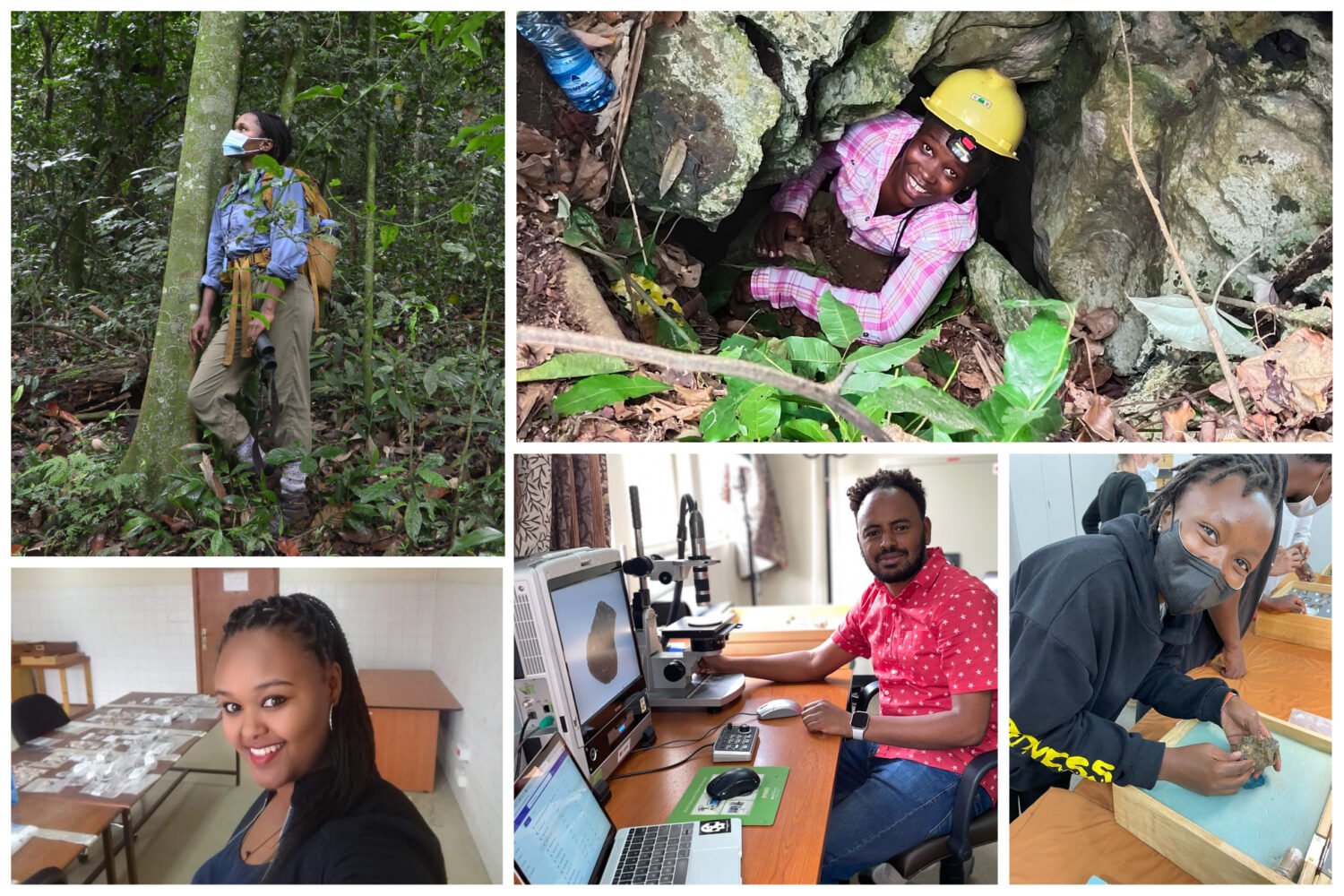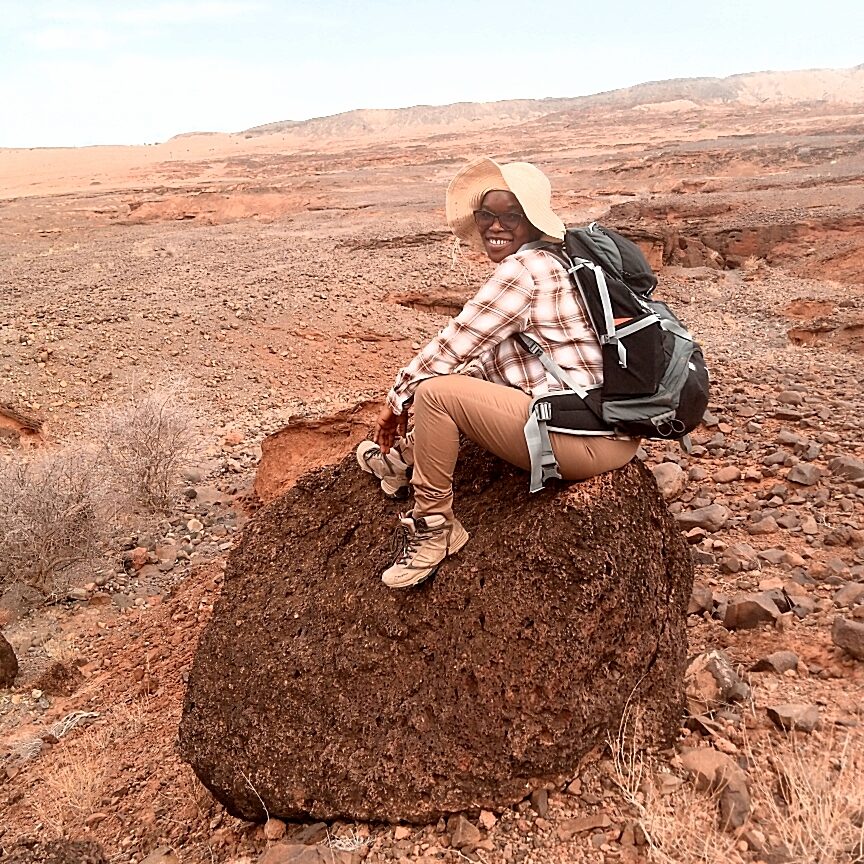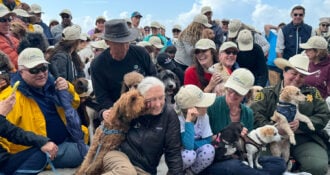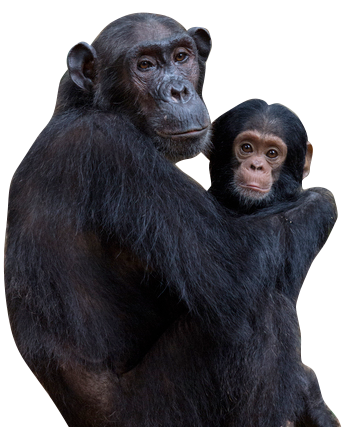
By Dr. Craig Feibel
Rutgers University
Leakey Foundation Scientific Executive Committee Member
Building the next generation of young scientists requires a combination of promising individuals, dedicated mentors, scientific opportunities, and strong support. For 45 years, the Baldwin Fellowships funded by The Leakey Foundation have provided that crucial element of support.
The success of the program has been resounding. As of August 2023, 220 young scholars from over 20 different countries have gained critical funding to begin their post-graduate careers at some 50 institutions around the world. Today, many have taken on important roles in the global scientific community as institutional leaders and as mentors of the next generation of scholars, including subsequent Baldwin Fellows.
The Baldwin Fellows program was established to help expand access to advanced degrees by students from countries with limited opportunities. Successful applicants come to the program with strong academic records, support from their home institutions and mentors, and remarkable dedication to their chosen fields. Often, they have volunteered for fieldwork and laboratory experiences, worked as interns or curators, and spent years pursuing the goal of furthering their post-graduate education. As a result, they carry a strong sense of purpose and a high level of maturity when entering a graduate program.
An essential element on the road to success for the Baldwin Fellows is mentorship. Often this begins with a chance encounter in the field, at a museum, or in the classroom, but the synergy between student and mentor will help mold and focus interests, open up opportunities, and begin to build the level of professionalism necessary for career success. The relationship requires significant investment on both sides. Communication is key, and that requires both time and effort from both parties. Mentors support students in grounding their ideas, challenging their assumptions, and finding avenues to successfully complete a research program. Many of the mentors who guide students towards the Baldwin Fellows program are themselves recipients of Leakey Foundation research grants, reinforcing the strong community the Foundation nurtures.
Even talented students can struggle if they pursue a project that is ill-defined, lacking in rigor, or just plain uninteresting. Baldwin Fellows are often engaged in scientific discovery within their home countries and work directly with leading researchers early in their careers. The effort applicants make in developing projects, and the feedback they receive through the review process helps to strengthen the science they pursue. By focusing on good students doing good science, the program helps ensure that these early career scientists start out having a strong impact on their science.
The intent of the Baldwin Fellows program is to help train scientists who will become leaders in their home countries. This sometimes means stepping into an existing infrastructure of academic institutions, museums, or research organizations. Equally important roles include outreach and conservation efforts. But often, the limited opportunities for advancement they faced as students persist in the career tracks available to graduates. The high proportion of Baldwin Fellows now in significant roles within their home countries demonstrates that with their determination and persistence, they are strengthening scientific contributions to society and expanding opportunities available to future generations.

My own experience with these young scientists has been remarkable. Over the years, I have worked with 22 Baldwin Fellows as a teacher, mentor, or scientific collaborator. I have seen first-hand how they expand the breadth of experiences in a classroom, lead by example, and bring their own perspectives to research. Among the most recent class of Baldwin Fellows, Eve Omondi was a student in my geology field course in the Turkana Basin of northern Kenya in 2019. Although her primary interest is in paleontology, Eve is great at geology and has a broad appreciation of the importance of context in understanding the past. In between various internships, she has accompanied me on four subsequent field trips and served as my teaching assistant for the geology course. Eve epitomizes the engaged and thoughtful scientists that The Leakey Foundation supports through its highly successful and donor-funded Baldwin Fellows program.






Comments 0